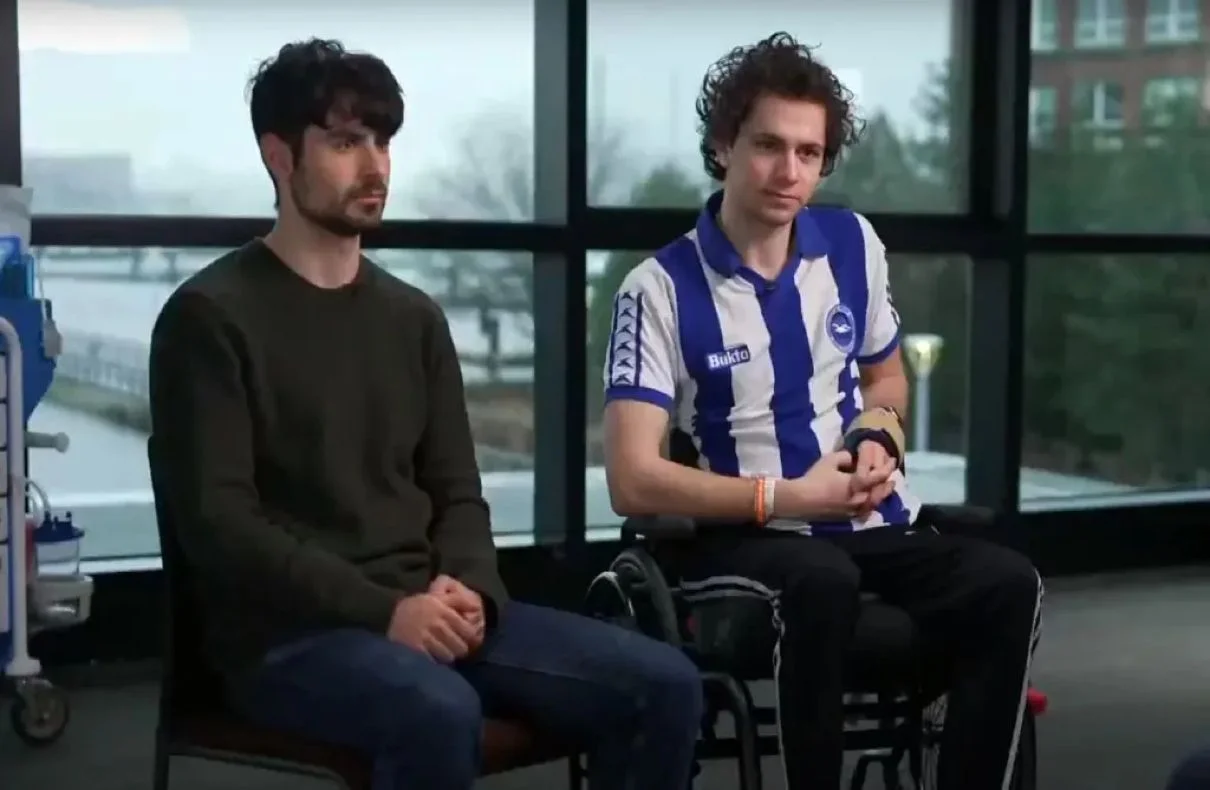
In a quiet neighborhood in Burlington, Vermont, a chilling incident unfolded that left three Palestinian students injured and shocked. Hisham Awartani, Kinnan Abdalhamid, and Tahseen Ali Ahmad found themselves in the crosshairs of a gunman on November 25th, 2023. As they walked near Awartani’s grandmother’s house, they were confronted by a man who opened fire, leaving them with life-altering injuries. In an exclusive interview with NBC News, they courageously shared their harrowing experience and shed light on the systemic dehumanization they believe led to the attack.
For Hisham Awartani, the realization that he had been shot came slowly. After falling to the ground during their walk, he looked at his phone and saw blood on it. The stark reality hit him: he had been targeted and wounded. Growing up in the Israeli-occupied West Bank, Awartani and his friends were unfortunately familiar with violence and aggression. In their homeland, unarmed young men being shot by the Israeli army was tragically normalized. So, when the shooting occurred in Burlington, Vermont, it was strange yet expected for them.
Awartani’s upbringing in the West Bank provided him with a unique perspective. In a place where violence against Palestinians is a daily occurrence, he had come to understand that such incidents were not isolated events. The shooting in Vermont became another painful reminder of the injustice faced by Palestinians. While the location may have differed, the underlying reality remained the same: the dehumanization and targeting of Palestinians.
Baby Held Hostage in Gaza Celebrates First Birthday
As Awartani, Abdalhamid, and Ahmad walked the streets of Burlington, they wore keffiyehs, traditional Palestinian scarves symbolizing solidarity. It was a visible expression of their identity and heritage, one that would unwittingly draw attention. The alleged shooter, they believe, had seen them earlier and may have been waiting for them. The act of wearing the keffiyehs seemed to connect the dots for the gunman, leading to a terrifying confrontation.
In a matter of seconds, their peaceful walk turned into a nightmare. Tahseen Ali Ahmad was the first to be shot, and his screams pierced the air. Hisham Awartani, immobilized by the gunshot wound, remained silent. Kinnan Abdalhamid, gripped by fear, started running for his life. The shooter, Jason Eaton, aimed his loaded pistol at each of them, leaving a trail of devastation in his wake.
Two days after the incident, Jason Eaton was arrested and charged with three counts of attempted second-degree murder. While the investigation is ongoing, Awartani and Abdalhamid firmly believe that the attack was motivated by hate. They see it as a hate crime, a product of the systemic dehumanization and prejudice faced by Palestinians. They are determined to see justice served, not just for themselves but for all victims of such crimes.
Abdalhamid recognizes that blaming the shooter alone would be insufficient. He understands that the incident is a symptom of a broader problem: the systemic dehumanization of Palestinians. This dehumanization, he claims, has been perpetuated through Western discourse and media, where Palestinians are often unfairly labeled as terrorists. The shooter, in his eyes, was influenced by this deeply ingrained bias.
Gaza death toll rises, former negotiator’s thoughts on peace prospects
Despite the challenges they face, Awartani and Abdalhamid remain hopeful for a better future. As Palestinians, they have learned to hold on to hope even in the face of adversity. However, they acknowledge that optimism is hard to come by, given the ongoing struggles in the Gaza Strip and the West Bank. The cycle of violence and oppression has persisted for far too long, leaving them cautiously hopeful but not overly optimistic.
The shooting in Vermont serves as a stark reminder of the larger humanitarian crisis unfolding in Palestine. Awartani and Abdalhamid emphasize that their own ordeal is just a drop in the ocean compared to the suffering endured by the people of Gaza. With thousands killed and countless others displaced, the situation in Gaza demands urgent attention. They express solidarity with those who have been disabled and deprived of basic necessities, such as access to clean water and healthcare.
As Awartani continues his rehabilitation and grapples with the life-altering consequences of the shooting, he finds solace in the fact that he has access to the care he needs. He reflects on the plight of those in Gaza who face similar challenges but lack the resources and support. The bullet lodged in his spine presents new obstacles, but he remains grateful for the care he receives, knowing that others are less fortunate.
The story of Hisham Awartani, Kinnan Abdalhamid, and Tahseen Ali Ahmad is a testament to the resilience of Palestinians in the face of adversity. Their experience sheds light on the unjust treatment faced by Palestinians both in their homeland and abroad. It serves as a reminder that hate crimes and systemic dehumanization have no place in our society. As we strive for justice and equality, their voices and stories must be heard, ensuring that such acts of violence are never normalized or forgotten.
